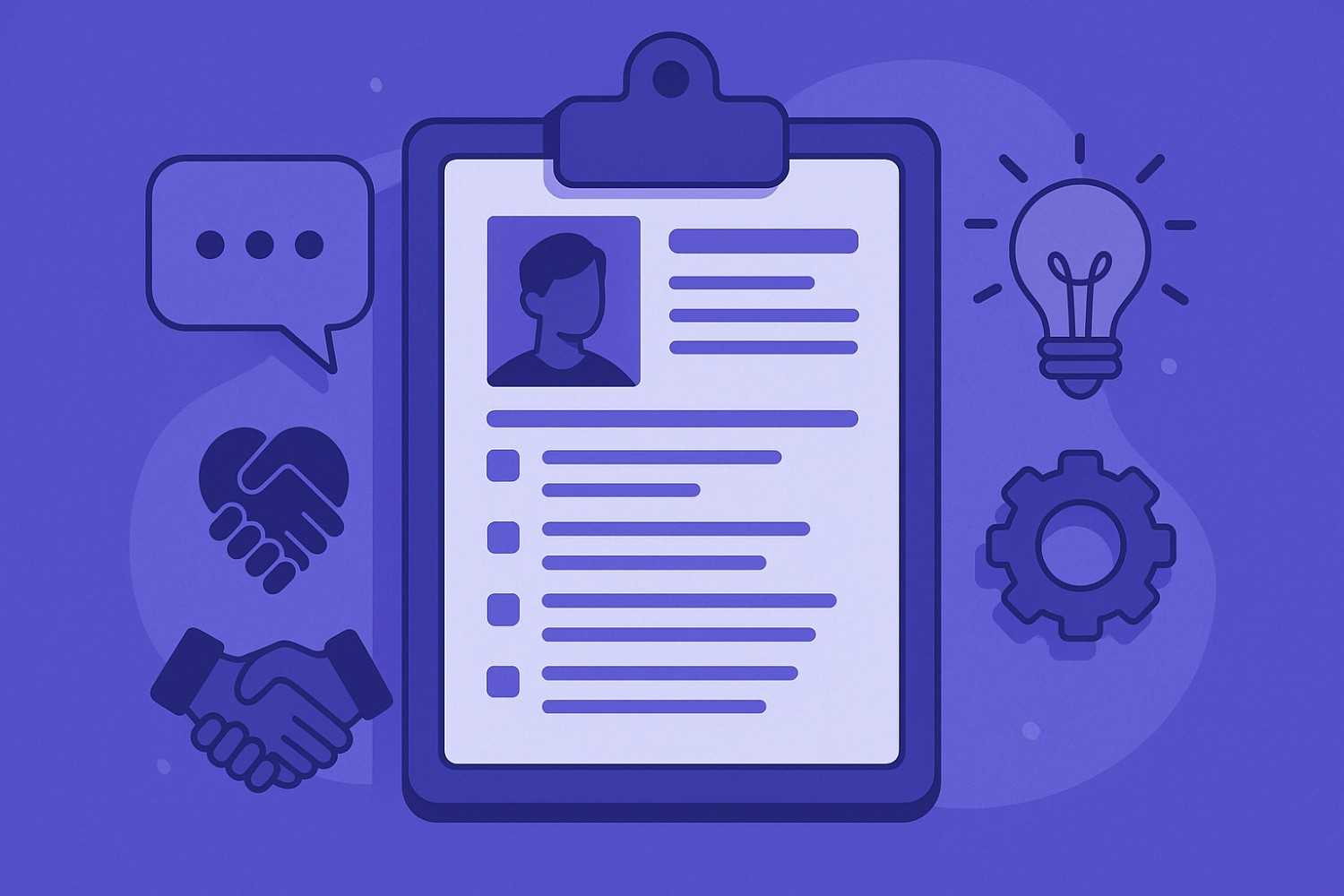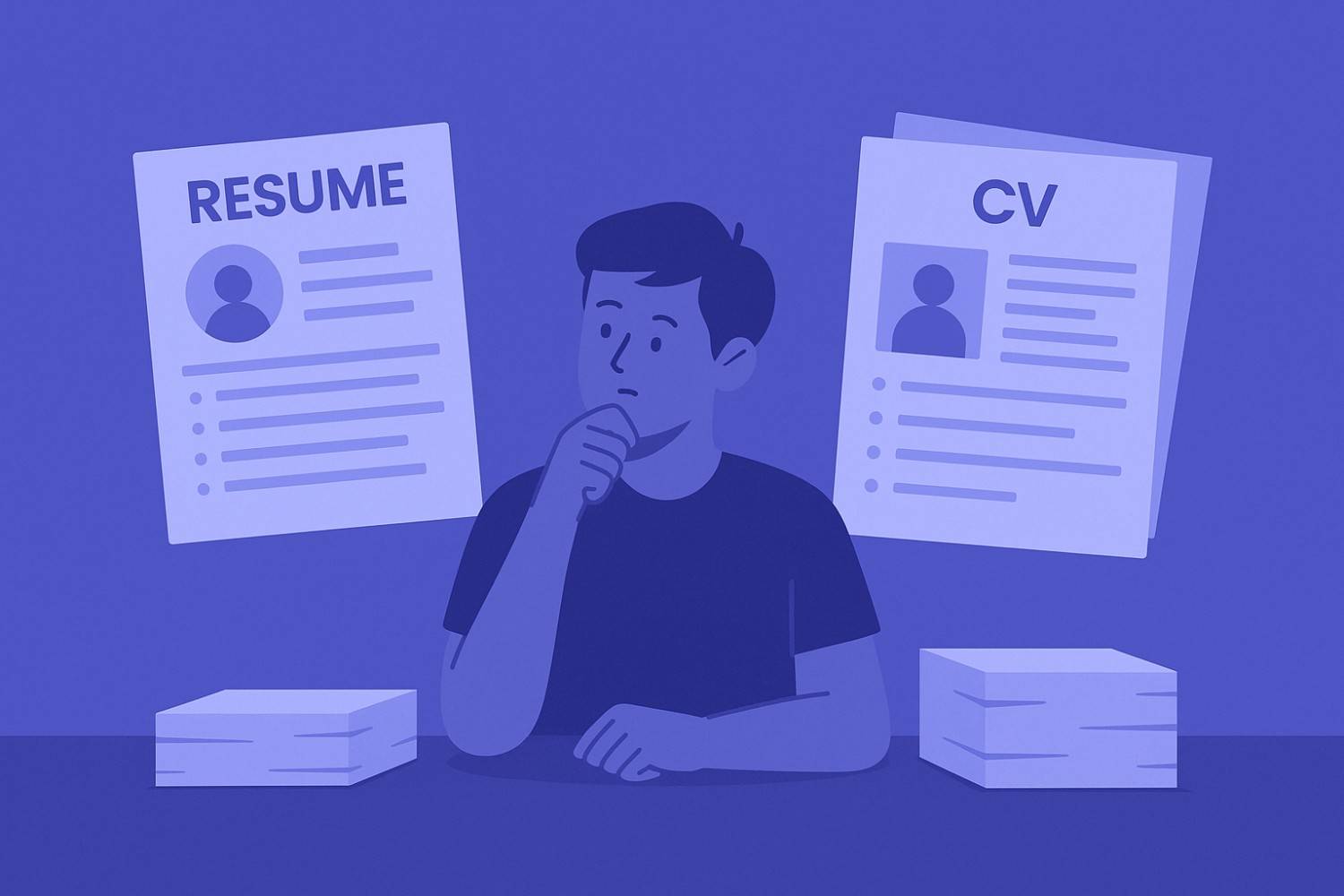Common Resume Mistakes and How to Avoid Them

Discover the essential hard and soft skills to feature on your resume. Get real examples and tips to showcase your...

Understand the key differences between a resume and a CV, when to use each, and how to format them for maximum...

Learn how to craft a standout resume as a fresher with no prior work experience. Tips on formatting, sections,...

Learn how to craft a compelling resume summary or objective that grabs recruiters’ attention. Get tips, examples,...

Learn how to strategically use keywords in your resume to pass applicant tracking systems (ATS) and land more...

Learn how to write a strong resume with essential sections, examples, and tips: perfect for students, freshers, and...

Learn how to customize your resume for each job application. Improve your shortlisting chances by aligning your...

Learn the differences between chronological, functional, and hybrid resume formats. Choose the best layout based on...

Learn the most frequent resume mistakes freshers and professionals make, with tips to fix them and stand out in a...

A complete, beginner-friendly guide to writing a professional resume with clear steps, examples, and tips using a...
Resources
-

Set up personalized job alerts to receive notifications about new job openings that match your...
-

Find part-time job opportunities perfect for students, parents, and professionals seeking...
-

Work from home jobs across industries with flexible hours, competitive pay, and real career...
-

Create professional resumes with easy-to-use resume builders. Choose from templates, get...
-

Kickstart your career with internships tailored for students and graduates — explore paid,...
-

Remote jobs have revolutionized how we work, giving professionals the freedom to contribute from...
-

Find the best fresher jobs and entry-level opportunities across IT, Finance, Marketing, and...

A resume can open doors or close them before you even get to the interview. And yet, many job seekers, especially students and early professionals, make errors that cost them real opportunities.
This guide walks you through the most frequent resume mistakes and shows you how to fix them step-by-step. Whether you're using a resume builder or starting from scratch, avoiding these errors will give you a cleaner, stronger, and more job-ready resume.
Why Resume Mistakes Hurt Your Chances
Hiring managers review dozens or even hundreds of resumes for each job. If yours has avoidable mistakes, they may move on without reading more than a few lines.
What looks like a “small error” to you can signal a lack of attention, effort, or understanding. Common resume issues include:
- Formatting that’s hard to read
- Empty or vague bullet points
- Typos or inconsistent grammar
- Overused buzzwords
- Irrelevant details that dilute your value
1. Using a Generic Resume for Every Job
What’s wrong?
Sending the same resume to every company may seem efficient, but it hurts your chances. A one-size-fits-all resume fails to speak directly to what the recruiter needs.
What to do instead:
- Customize your summary, skills, and experience bullets to match the job description.
- Use keywords from the posting (only if accurate).
- Prioritize relevant projects or coursework for each industry.
- Adjust your file name to match the role:
Name_Resume_MarketingIntern.pdf
Small, specific changes make a big difference.
2. Writing a Vague or Wordy Resume Summary
Common mistake:
Motivated and hardworking individual seeking a challenging position to utilize my full potential.
This doesn’t tell the recruiter anything useful.
Fix it:
Your summary should answer: “What value do I bring, and what kind of role am I looking for?”
Better examples:
Final-year B.Com student with hands-on experience in financial analysis and Excel-based reporting. Seeking a data-focused internship in fintech.
Recent design graduate with projects in Figma and Adobe XD. Looking to join a UI/UX team where I can grow fast and contribute from day one.
Limit it to 2–3 lines. Avoid empty adjectives unless followed by proof.
3. Poor Formatting and Layout
Even if your content is great, bad formatting makes it hard to read, and that means fewer callbacks.
What goes wrong:
- Fancy fonts or multiple colors
- Profile pictures
- Narrow margins
- Tables that break in ATS
- Saving as Word instead of PDF
Best practices:
- Use 1–2 fonts consistently (Calibri or Arial)
- Black text on white background
- Bullet points for achievements
- Clean margins (1 inch)
- Save as PDF
A clean layout shows professionalism before you even speak a word.
4. Spelling and Grammar Mistakes
If your resume has typos, recruiters may assume you didn’t check it—or won’t check your work in the job either.
Examples:
- Manged a team of 4 interns
- Concentrated on digital markting
- Excelent comunication skills
What to do:
- Use Grammarly
- Ask a friend to review
- Read it out loud
- Keep sentences short and clear
5. Listing Responsibilities Instead of Results
Most people just write what they were "supposed to do," not what they achieved.
Weak example:
Responsible for handling customer support and solving queries.
Strong example:
Resolved 90+ customer issues over live chat within SLA, maintaining a 95% satisfaction rate.
Use the STAR format:
- Situation
- Task
- Action
- Result
Even as a fresher, quantify your work:
- Wrote 10 blog posts with 4,000 views
- Grew Instagram followers by 15% in 2 months
- Analyzed 100 rows of data in Excel for a finance project
6. Adding Skills You Don’t Actually Know
Many applicants list 15–20 skills, half of which they’ve never used.
What to do:
- Only add tools or skills you’ve actually practiced
- Explain them in your project descriptions
- Mention tools you’re learning rather than pretending fluency
Accurate skills = stronger interviews and better fit.
7. Not Including Projects or Freelance Work
If you’re a student, your projects are your experience.
Mistake:
Leaving the “Experience” section blank.
Fix it:
Include:
- Class projects
- Hackathons
- Side projects
- Volunteer assignments
Example:
Personal Finance Tracker – Excel Project
Built a dashboard with SUMIF and pivot tables to track spending. Shared with 25 students.
Show you’re already working on things that matter.
8. Ignoring Soft Skills That Matter
Soft skills often get ignored—or worse, listed without proof.
Mistake:
Good team player, hardworking, self-motivated.
Stronger:
Coordinated with 4 team members on a marketing pitch. Delivered final proposal 2 days early.
Volunteered at a campus event, managing coordination across 3 departments and 40+ attendees.
9. Listing Hobbies That Don’t Add Value
Mistake:
Hobbies: Sleeping, Netflix, long walks on the beach.
Better examples:
Photography – Won campus photo contest; maintain Instagram with 5K+ followers
Blogging – Write weekly tech explainers on Medium
Teaching – Tutor two school students in science weekly
Only list hobbies that show effort or creativity.
10. Misusing the Certifications Section
Courses are great, but irrelevant ones clutter your resume.
Mistakes:
- Listing every YouTube video watched
- Repeating certifications
- Adding beginner tutorials with no output
What works:
- 3–5 relevant certifications
- Year of completion
- Optional: what you built
Example:
Coursera – Python for Everybody (2023)
Learned scripting and APIs. Built a Twitter bot as final project.
11. Saving the Resume with a Bad File Name
This small detail makes a big impression.
Common mistakes:
- Resume-final.docx
- Untitled.pdf
- MyResume2023_updated_v3.pdf
Better:
FirstName_LastName_Resume_JobRole.pdf
Example: Aarav_Kumar_Resume_DesignIntern.pdf
Always save as PDF.
12. Submitting Without a Check or Proofread
Before you send, review this checklist:
- [ ] Contact info correct
- [ ] PDF with clean file name
- [ ] No typos or formatting issues
- [ ] Project descriptions are specific
- [ ] Skills are accurate
- [ ] One-page resume (for freshers)
- [ ] Looks good on mobile
If yes, you’re ready to apply.
Closing Note: Better Resumes, Better Results
Fixing your resume doesn’t mean rewriting your life story—it means telling it clearly and honestly.
By avoiding these mistakes, you’re ahead of the pack:
- You’re showing self-awareness
- You’ve taken time to improve
- You’re making the recruiter’s job easier
A great resume won’t land you every job, but it will get you noticed for the right ones.
Want to skip formatting stress? Try the JobPe Resume Builder to create a recruiter-ready resume in minutes.
